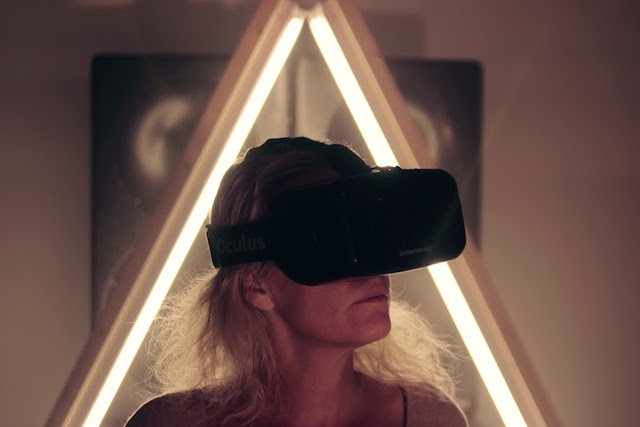The Future of Music: Virtual Reality
 In the past few years, we’ve seen advancing technology altering the entertainment industry in ways we could have never imagined. From augmented reality reviving Pokémania to deceased performers as holographs taking the stage for a final show, the ways in which the world consumes media is developing by the day.
In the past few years, we’ve seen advancing technology altering the entertainment industry in ways we could have never imagined. From augmented reality reviving Pokémania to deceased performers as holographs taking the stage for a final show, the ways in which the world consumes media is developing by the day.
Take concerts, for example: Is it simply a matter of time before concerts aren’t concerts in the traditional sense at all? Rather, as virtual reality technology becomes mainstream, music-going experiences might amount to a confused crowd of headsets bobbing around a warehouse-like room.
Or, if you can snag a seat on The Dream Wanderer, a traveling VR theater housed inside a small bus, your computer-generated concerts will be a little bit more mobile. According to its creator, Kyle Marler, the bus will feature dangling HDMI cables for the headsets and ghost chair seating for four individual VR stations. Starting in December, Marler plans to collaborate the technology behind The Dream Wanderer with musicians across various U.S. cities to create artistic “happenings.”
The concept of immersive VR venues is nothing new. However, as with The Dream Wanderer, we’re seeing them infiltrate industries beyond the gaming one. Boiler Room, a global online music broadcasting platform that specializes in streaming live music performances, has recently partnered with Virtual Reality entertainment creator, Inception, to build what they say will be the world's first stationed VR music venue in London.
It’s unclear if Boiler Room will specialize in dance music, but because the company’s CEO explicitly mentioned raves in the official opening announcement, we’re wondering what VR means for our nights out on the town. On one hand, clubbing definitely doesn’t require any physical proximity to the DJ to be entertaining, unlike going to a rock concert and having a good view of the stage. On the other, the most memorable evenings on the dancefloor typically involve a bunch of sweaty bodies around you, you know, dancing together.
Raving aside, the dynamic of the relationship between music and VR will ultimately depend on the use of VR technology by musicians. As the hardware grows sleeker and more accessible, music could actually be created with it – virtually. Some artists have tested using VR as a platform for promoting song or album releases. Others have been individually livestreaming performances on the Internet for quite some time now, so the presence of virtual reality is nothing new.
What is new is the mentality of using VR technology so that fans who can’t attend a show for geographical, financial, or medical reasons can still experience art in a way that is as close to real as possible. This way, a wheelchair-bound music lover can get that good view of that rock concert.
VR is expected to become the next interface of the world one day, completely reshaping how humans experience things. Before it gets there, though, it will be worth getting some VR engagement under your belt.
Our recommendation? If you find yourself abroad in Europe starting in 2017, stop by London, hit up a pub, and drag your friends to Boiler Room for a night out like no other.



